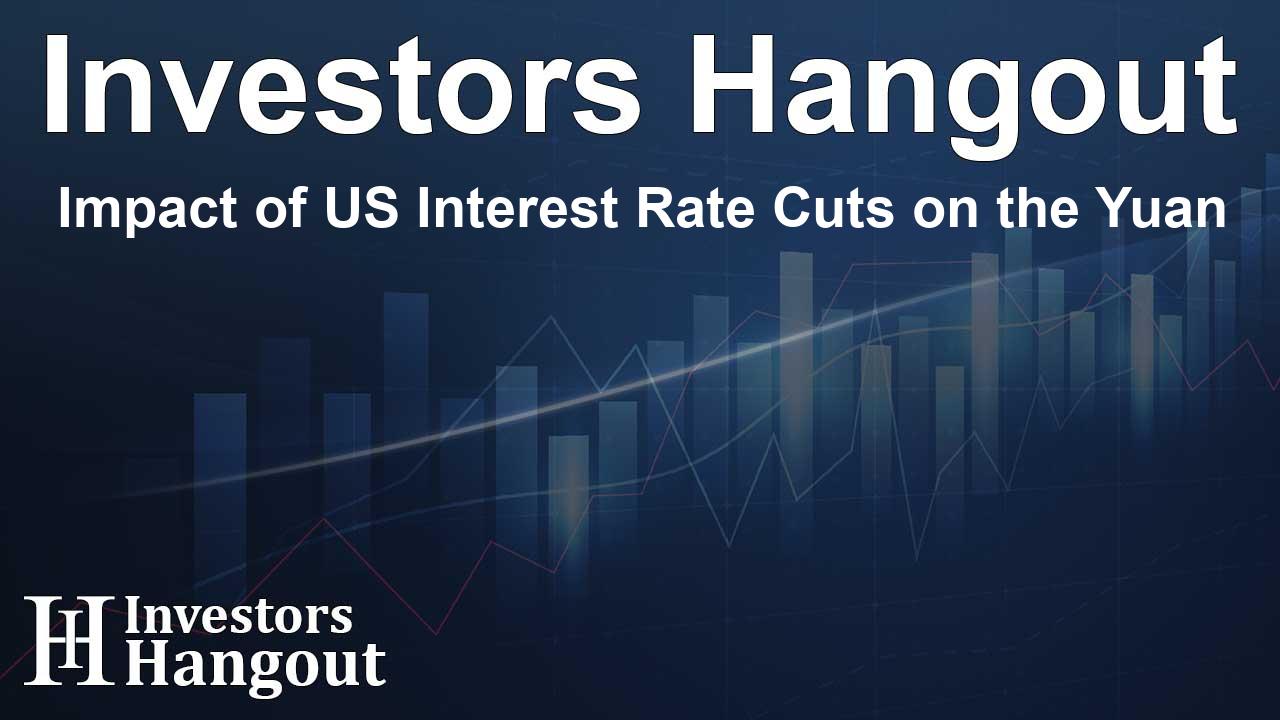US Interest Rate Cuts and Their Potential Impact on the Yuan
Recent analyses suggest that Chinese firms could be encouraged to sell off large dollar-denominated assets as a result of lower interest rates in the US. This could lead to a significant appreciation of the yuan, with estimates suggesting an increase of up to 10%.
The Current Economic Landscape
The financial world is paying close attention to the implications of US monetary policy, particularly as the Federal Reserve signals potential cuts in interest rates. Stephen Jen, the chief executive of Eurizon SLJ Capital, indicates that the current perception of currency risk in the market is not accurately aligned with reality, particularly for the yuan.
According to Jen, a considerable number of Chinese investments are currently parked offshore, potentially exceeding $2 trillion since the pandemic began. These investments are often in assets that yield higher returns than their yuan-equivalent counterparts. As the Fed reduces borrowing costs, the appeal of dollar assets may diminish, prompting a return of funds back to China.
The Implications of Currency Repatriation
This shift, termed a 'conservative' repatriation of about $1 trillion, may result in significant capital flowing back into China, with the yuan appreciating as a consequence. Jen emphasizes that this could act like an avalanche, whereby the yuan might be permitted to rise by 5-10%, a modest gain deemed acceptable by Chinese authorities.
Market Dynamics and Predictions
Jen's insights align with his established theories on currency dynamics, notably the 'dollar smile' theory. He believes that if the US continues to experience declining prices, the Federal Reserve may cut rates more aggressively than the market anticipates. Coupled with a perceived overvaluation of the dollar and ongoing economic challenges, this creates a scenario where the dollar could weaken against the yuan.
Currently, the yuan trades around 7.12 per dollar, a notable recovery from its previous lows of 7.28 earlier in the summer. If the People’s Bank of China (PBOC) does not intervene to maintain dollar liquidity, we could see a more substantial gain for the yuan.
The Risk of a Currency Surge
Jerome Powell, the Federal Reserve Chair, recently hinted at the necessity of policy rate cuts, further fueling speculation about currency movements. However, experts caution that such moves won't instantly lead to a dramatic shift in the yuan, especially in the context of a potential soft landing for the US economy where inflation decreases without triggering a recession.
The Consequences of a Strengthening Yuan
As the yuan gains strength, it poses risks similar to those witnessed during the yen carry trade unwinding. This could create ripples across various markets, especially in Asia, where a significant withdrawal of yuan-backed investments could provoke widespread market volatility.
Nevertheless, it’s important to note that the PBOC has a variety of tools at its disposal to manage excessive fluctuations in the yuan’s value. Maintaining a balance is crucial, as aggressive appreciation in the yuan may negatively impact China’s export dynamics, which are already under pressure from a sluggish economic recovery.
The Monitoring of Currency Stability
Chinese authorities are acutely aware of the implications of a robust yuan on exporters and are taking precautions to mitigate unwanted effects. Recent measures implemented by the PBOC include adjustments to the reference rate for the onshore yuan and stipulations regarding foreign-currency reserves that banks must hold.
Future Expectations and Market Strategies
The gap between US and Chinese yields remains significant even with some contraction, resulting in reluctance among corporations to divest their dollar holdings. Estimates indicate that since 2022, major Chinese exporters and multinationals may have hoarded approximately $500 billion in dollar assets.
Jen concludes by asserting that pressure to elevate the yuan exists, mostly because a substantial portion of these dollar holdings, if treated as 'footloose', could mobilize rapidly in response to market changes. This scenario plays into a larger narrative of potential market dynamics waiting to unfold in the economic sphere.
Frequently Asked Questions
What impact might US interest rate cuts have on the yuan?
Lower US interest rates could decrease the attractiveness of dollar-denominated assets, leading to a potential appreciation of the yuan by 5-10%.
How much capital could potentially flow back to China?
Analysts suggest that around $1 trillion in capital could return to China as companies liquidate dollar assets.
What are the risks associated with a surging yuan?
A strengthening yuan could affect China's exports and may lead to significant market volatility, especially in Asia.
What tools does the PBOC have to control the yuan's value?
The PBOC can adjust the daily reference rate for the yuan and change the reserve requirements for banks handling foreign currency.
How much dollar-denominated assets have Chinese companies accumulated?
Estimates suggest Chinese exporters and multinationals may hold over $500 billion in dollar assets since 2022, reflecting a significant financial position.
About The Author
Contact Owen Jenkins privately here. Or send an email with ATTN: Owen Jenkins as the subject to contact@investorshangout.com.
About Investors Hangout
Investors Hangout is a leading online stock forum for financial discussion and learning, offering a wide range of free tools and resources. It draws in traders of all levels, who exchange market knowledge, investigate trading tactics, and keep an eye on industry developments in real time. Featuring financial articles, stock message boards, quotes, charts, company profiles, and live news updates. Through cooperative learning and a wealth of informational resources, it helps users from novices creating their first portfolios to experts honing their techniques. Join Investors Hangout today: https://investorshangout.com/
The content of this article is based on factual, publicly available information and does not represent legal, financial, or investment advice. Investors Hangout does not offer financial advice, and the author is not a licensed financial advisor. Consult a qualified advisor before making any financial or investment decisions based on this article. This article should not be considered advice to purchase, sell, or hold any securities or other investments. If any of the material provided here is inaccurate, please contact us for corrections.

